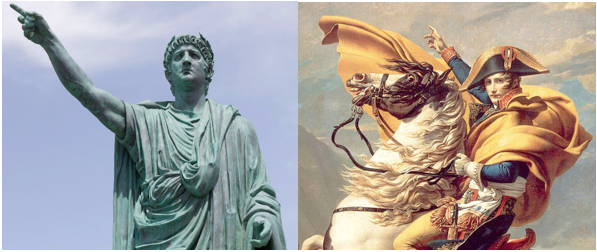Nemini Amicus, Princeps Omnium Latronum, Ecclesiae Oppressor, Neronis Emulator (friend of no one, prince of all marauders, harasser of the Church, emulate of Nero) the fierce acrostic exhibits the dissent expressed by the Alexandrian population against Napoleon. Did the fatal man (definition of the Corsican General, given by Alessandro Manzoni in the ode ‘’The Fifth of May’’) really emulate the fifth Roman emperor or did the defamation offend intelligence? ‘’People loved Nero, because he oppressed important people, but he was mild with the minor’’. Napoleon Bonaparte’s aphorism can return the aura of rightness to the identikit applied by custom to the two famous emperors inclined to protect the people and control the aristocratic hegemony. It was the year 64 and Nero collaborated, without any interposition, together with the rescuers intervened to tame the fire of Rome and then he hijacked foodstuffs to the population exhausted by the tragedy (this irritated the patrician) and held back speculation on reconstruction. Napoleon had understood the usefulness of seducing the crowd to increase French domination over Europe and, therefore, launched the Civil Code (1804) to guarantee individual freedom and equality before the law. Moreover, the Corsican leader established the school run by the State to remove education from private initiative and imposed smallpox vaccine on Army recruits first and on French subjects then.
The vision of foreign policy separated Nero (the prince who was resistant to military campaigns; in fact, he participated only in the Armenian expedition) from the General who intervened on the battlefield on three continents. The conscription, compulsory in Italy since August 13, 1802, because of the will of Napoleon Bonaparte, President of the Italian Republic, increased the popular fear that had flowed into the anti- French insurgency.
The absurdity of separating the crowd from the center of power is also supported by the motto Deprimit elatos levat Alexandria stratos (Alexandria humiliates uppish people and elevates humble people) inscribed on the Alexandrian civic coat of arms: the phrase was conceived by Pope Alexander III.
